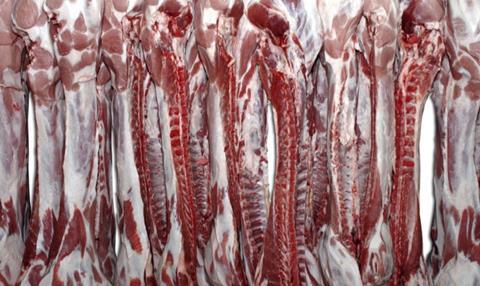Defra’s pork industry consultation “ignores many of the complexities and commercial forces further downstream that contribute to the problems [producers] have been facing,” according to the British Meat Processors Association (BMPA).

Defra launched a consultation earlier this year to “build a better understanding” of how the pork supply chain works with the view to consider what changes might be needed. The consultation is active over the period which started back on 15th July and goes through to 7th October 2022.
According to the BMPA report, Defra's consultation into contractual practices in the pig sector looks at one small part of the supply chain. It said that the questions in Defra’s consultation focus on interactions between producers and processors, therefore the Association is asking Defra to consult with it separately to “build the complete picture that will allow [Defra] to make fully informed decisions.”
It said that processors are the “hub of the industry” and therefore they have a “unique perspective” on how the market operates.
BMPA said its concern is that this consultation will leave Defra with “insufficient information” on which to base future decisions, and there is “a danger that a well-intentioned change to the system could backfire and result in a worse situation for [producers].” Due to the “sheer complexity” of the pork supply chain, changes to one part of it can cause adjustments elsewhere.
The BMPA highlight factors which, it says, can throw the “market dynamics out of balance” if changes were made to a particular area of the supply chain without consideration to the other, interconnected areas of production.
Market dynamics
Firstly, numbers in the UK pig herd can “fluctuate massively” throughout the year and the pig lifecycle is much shorter than cows, taking around nine months to start producing the first animals for sale. Cows produce one to two calves at a time, but one sow can produce up to thirty piglets. BMPA said the recent “crisis in the pig industry” has illustrated the need to keep these numbers in balance as the number of pigs on farms increased quickly as demand from China collapsed.
Secondly, meat processors are “suffering a chronic labour shortage” across the board, which has resulted in less capacity to buy and process animals, and a reduced ability to deal with an oversupply of pigs.
BMPA said that the industry relied on a supply of EU workers who are prepared to re-locate to where the jobs are. Now there is a small number of larger meat plants, often in remote locations, this means it’s “no longer possible” to find UK workers who are prepared to re-locate.
Thirdly, China experienced a “catastrophic” drop in its pig herd a few years ago, as African Swine Fever affected the pig population and forced a mass cull of animals. Producers from around the world including the UK expanded their pig herds rapidly to meet demand, BMPA explained.
It added: “However, because of the short lifecycle, China’s pig herd was re-established very quickly, leaving British, European and other producers with expanded herds but no market.”
Unique perspective
Nick Allen, CEO of the BMPA explained what the Association is urging Defra to do, commenting: "We have a unique perspective on how the market operates and can speak with some authority on the various forces and commercial influences that shape the pork market.
"We think this warrants a more comprehensive treatment than the current consultation allows for, so we are asking Defra to consult with us separately and in more detail so we can help build the complete picture that will allow them to make fully informed decisions."
This story was originally published on a previous version of the Meat Management website and so there may be some missing images and formatting issues.












